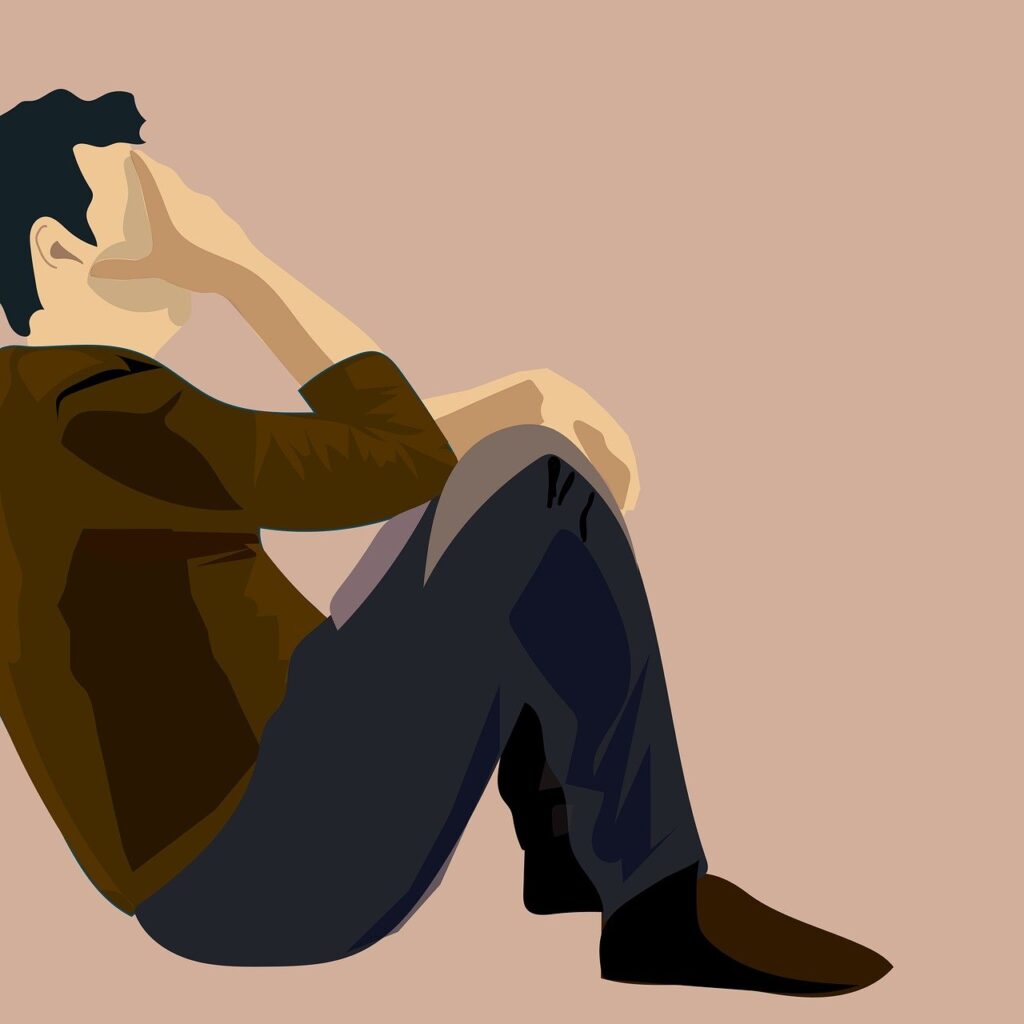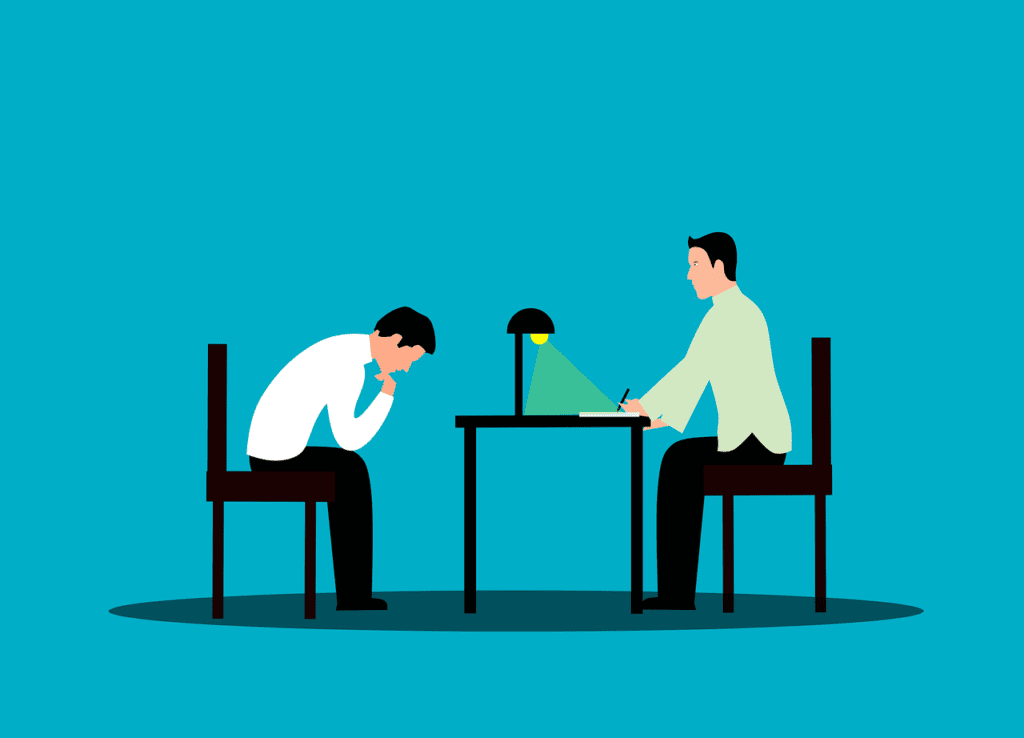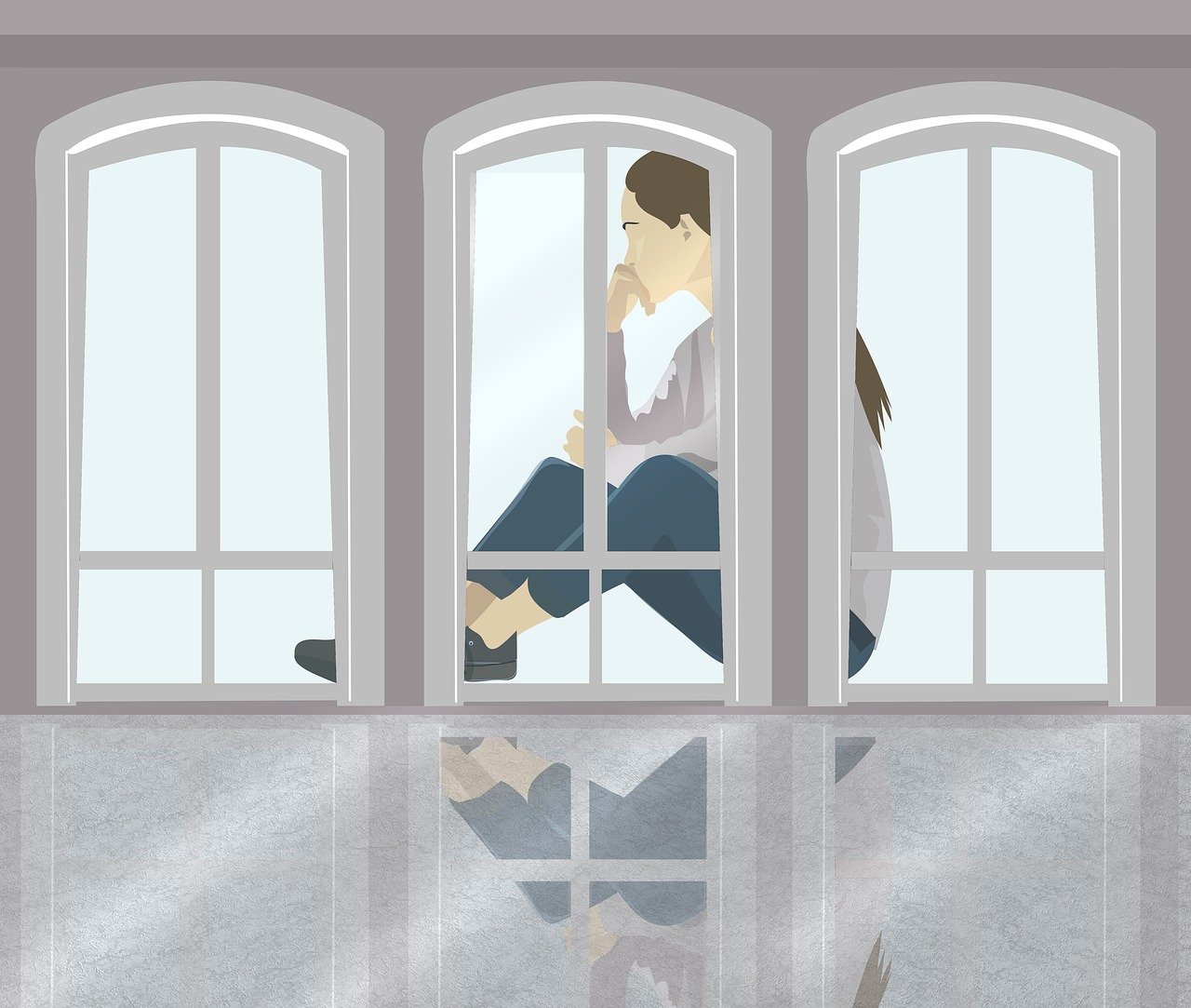Depression is a debilitating disorder that affects a person’s mood, behaviors, and thoughts. This disorder can cause symptoms of sadness, hopelessness, low self-esteem, and difficulty sleeping. Depression is much more than just sadness. It’s a serious mood disorder that affects around 15 million in the US alone, according to the Anxiety & Depression Association of America. It’s important to remember with depression, early intervention is imperative. The earlier one seeks out treatment for depression, the better outcomes tend to be.
What Is Depression?
Depression is a mental health disorder that affects a person’s mood and all areas of their life. This disorder changes how people see the world, their behaviors, and emotions. Unfortunately, people use the words sadness and depression interchangeably. This is not accurate. It’s normal to have feelings of sadness through challenging parts of life. These feelings usually come from situational elements in a person’s life. On the other hand, clinical depression is a debilitating disorder that affects all aspects of a person’s life. If not treated properly, depression can be a lifelong struggle for some people.
What Are Signs and Symptoms of Depression?
As previously mentioned, depression affects all areas of a person’s life—emotional, physical, and cognitive effects. When someone is experiencing symptoms of depression, it’s typically a combination of the three categories.
Emotional Symptoms
Some of the emotional symptoms of depression are persistent feelings of sadness, hopelessness, and emptiness. In addition, people may experience irritability or frustration over small problems.
Physical Symptoms
The physical symptoms of depression include changes in a person’s eating habits or weight. It’s also quite common for people with depression to experience insomnia or oversleep. These sleep disturbances can lead to feelings of irritability or trouble concentrating. Other symptoms include a lack of energy or physical problems without known cause.
Cognitive Symptoms
Depression also causes cognitive issues for people who struggle with it. These include difficulty concentrating, making decisions, or remembering important things. In cases of high levels of depression, the person struggling might have thoughts of death or suicide.
Types of Depression
Below, we will discuss the five main types of depression. It’s helpful to know the differences and distinguishing symptoms for each type.
What Is Major Depressive Disorder?
Major depressive disorder (MDD), also known as clinical depression, is a mental health disorder with symptoms such as a loss of interest in things that typically the person would enjoy doing. The symptoms must persist for at least two weeks to be categorized as MDD.
What Is Persistent Depressive Disorder (Dysthymia)?
Persistent Depressive Disorder (PDD) is a mood disorder that has symptoms of depression but over a longer period. PDD is a long-term form of depression.
What Is Bipolar Disorder?
Bipolar disorder is a mental health disorder that is characterized by extreme shifts in a person’s mood. In addition to mood, this disorder might include unusual energy and activity level shifts. There are several types of bipolar disorders, including Bipolar I, Bipolar II, and cyclothymic disorder.
Seasonal Affective Disorder
Seasonal Affective Disorder (SAD) is a type of depression that is characterized by symptoms recurring during certain seasons. Usually, people experience SAD during the fall and winter when the weather is colder.
Postpartum Depression
Postpartum depression is a type of depression in which symptoms present after a woman gives birth. This can affect the mother’s ability to bond with her baby. Postpartum depression can also include the mother having feelings of fear that they might hurt their baby.
What Are Causes and Risk Factors for Depression?
While research hasn’t pinpointed a single cause of depression, understanding potential causes and risk factors can be helpful. Similar to the symptoms discussed earlier, there a number of factors that usually cause depression.

Biological Factors
The biological factors that might lead to depression include genetics and family history. It’s helpful to know the mental health history of people in your family so you can be prepared for any potential risks. In addition to this, there also might be brain chemistry and hormonal imbalances that might put someone at risk for depression.
Environmental Factors
In addition to the biological factors mentioned, there are also environmental factors that might contribute to causing depression. These include traumatic life events, exposure to violence, or chronic stress.
Psychological Factors
The psychological factors that could contribute to someone developing depression include co-occurring mental health conditions and other personality traits. Personality traits that might put someone at risk for depression include low self-esteem, perfectionism, and introversion.
How Do You Diagnose Depression?
When diagnosing depression, it’s important to work with a licensed professional who has the training to evaluate your symptoms. The DSM-5 states that to be diagnosed with depression, the patient must have either a depressed mood or a loss of interest in activities that typically the person enjoys. The DSM-5 also states that these symptoms need to be causing significant distress to the patient.
What Are Treatment Options for Depression?
There are many treatment options available for depression. Someone struggling with depression can choose the best treatment for their specific situation. When selecting a treatment option, it can be helpful to find a professional who specializes in treating depression, if possible.
Cognitive Behavioral Therapy
Cognitive Behavioral Therapy (CBT) is a type of therapy that focuses on identifying negative thought patterns and reframing them to be more realistic. This approach emphasizes the interconnectivity between our emotions, thoughts, and actions. When people seek CBT treatment for depression, they will learn techniques to reframe thoughts and beliefs that lead to their depression.
Dialectical Behavior Therapy
Dialectical Behavior Therapy (DBT) is a type of therapy that teaches skills to help people struggling with strong emotions. When someone is struggling with depression, this could be considered a strong emotion. The core components of DBT are mindfulness, distress tolerance, interpersonal effectiveness, and emotional regulation. DBT is particularly effective for individuals who have difficulty managing their emotions on their own.
Existential Therapy/Meaning Therapy
Existential Therapy/Meaning Therapy is a type of therapy that uses philosophical principles to help patients find meaning in their lives. This is helpful for patients struggling with depression who feel lost, hopeless, or alone. Existential Therapy/Meaning Therapy directly addresses these common symptoms of depression.

Behavior Activation
Behavioral activation is a therapeutic technique that helps individuals with depression by encouraging them to engage in meaningful and enjoyable activities. It aims to break the cycle of avoidance and inactivity, which often worsens depressive symptoms. Increasing positive experiences and reinforcing healthy behaviors can improve mood, motivation, and overall mental well-being.
Mindfulness-Based Therapies
Mindfulness-based therapies focus on staying in the present moment and teaching patients to maintain a nonjudgmental attitude toward their thoughts. Mindfulness can be helpful for depression because it separates the person from the negative thoughts they are experiencing. You can practice mindfulness anytime you want to try it. You can incorporate it into activities you already do, such as eating, driving, or walking.
Walk and Talk Therapy
Walk-and-talk therapy combines talk therapy and exercise to help patients with whatever they are going through. This type of therapy allows the patient to benefit from exercise and psychotherapy. It can be incredible for someone struggling with depression because research has proven that exercise improves symptoms of depression. Walk-and-talk therapy is also usually done outdoors. Being outdoors has proven benefits for mood and depression.
Expressive Art Therapy
Expressive art therapy is a type of therapy that uses art as a tool to work through mental health issues. Art therapy can be helpful for people who have trouble articulating how they are feeling with words. It can also be beneficial for people with depression because it can help them to use creativity to heal. Art therapy includes painting, drawing, writing, or sculpting. Creativity can be a wonderful tool to use when healing from depression.
Movie Therapy (Cinema Therapy)
Movie therapy is a type of therapy that uses movies to help patients work through whatever mental health struggle they are dealing with. It helps patients work through their specific issues by helping them gain insights, release emotions, or provide inspiration. When someone is struggling with depression, they often feel hopeless. Through movie therapy, this patient’s therapist could choose a movie to inspire them.
Online Therapy
Online therapy is a type of therapy that occurs in a virtual environment. This tool is useful for people new to therapy and nervous about going in person for the first time. It’s also possible that online therapy could be at a lower cost than in-person therapy, which could help barriers to treatment. Online therapy can be done over the phone or video chat. In addition to one-on-one online therapy, there are also group therapy options for depression. Group therapy can help treat depression because it incorporates a social element into the treatment. Maintaining social relationships is an important part of maintaining recovery from depression.
Medications
Medications play a useful role in treating depression because it is thought that chemical imbalances in the brain can cause depression. When taking any new type of medication, it’s important to be under a doctor’s care. There are side effects with certain medications that have the potential to cause dangerous effects. These medications can also have side effects with supplements, which makes it important to discuss with your doctor.
Antidepressants (SSRIs, SNRIs, MAOIs)
Selective serotonin reuptake inhibitors
Selective serotonin reuptake inhibitors (SSRIs) are medications that block serotonin from being absorbed by proteins in the brain. These medications help to regulate mood and are usually used to treat anxiety and depression.
Serotonin and norepinephrine reuptake inhibitors
Serotonin and norepinephrine reuptake inhibitors (SNRIs) are medications that block the reabsorption of serotonin and norepinephrine. While SNRIs are typically used for depression, they can also be used to treat sleep and anxiety disorders.
Monoamine oxidase inhibitors
Monoamine oxidase inhibitors (MAOIs) stop the activity of monoamine oxidase enzymes, removing neurotransmitters from the brain. When these neurotransmitters are at higher levels, depression symptoms can improve.
Alternative Treatments
Lifestyle changes
Lifestyle changes can also play a role in the treatment of depression. Patients who struggle with depression could potentially benefit from lifestyle changes such as improving their diet, exercise, and sleep hygiene. Other lifestyle changes might include changing a person’s profession, relationships, or living situation.
Mindfulness and meditation
Mindfulness focuses on the present moment and maintaining a non-judgemental attitude toward thoughts that may arise. Meditation is a practice that teaches us to focus on something for a prolonged period of time to reduce negative thoughts or emotions. Meditation practices can be done in many different ways. If you are new to meditation, many online resources exist to help you become informed.
Complementary therapies
Complementary therapies also have a place in treating depression. These types of therapies include yoga, acupuncture, music therapy, biofeedback, and massage therapy.
The Importance of Early Intervention
When dealing with depression, it’s important to start treatment as early as possible. This is because the longer depression symptoms last, the harder they will be to treat. Treating depression early can also prevent complications from the symptoms of it. In addition to these benefits, early intervention for depression will improve the person’s quality of life.
Depression is a serious, life-threatening disorder that should be treated as soon as possible. When looking for signs and symptoms of depression, it’s important to look for emotional, physical, and cognitive signs. Certain risk factors may make someone more likely to deal with depression in their life. These factors are characterized into biological, environmental, and psychological categories. While there isn’t a specific cause for depression, knowing the signs can be helpful for yourself and others. There are many evidence-based therapy options for treating depression. It is best to use these treatments in conjunction with medications and sometimes alternative treatments.
Starting Treatment
If you or someone you love is struggling with symptoms of depression, we encourage you to seek professional help. You deserve to live a life free of your depression or at least lessened. Whenever you are ready, you can reach out to us here to start your recovery journey from depression. We believe in you and are ready to help you however we can.
Here are some additional articles you may find helpful:
- The Pillars of Personal Growth: Building a Strong Mental Health Foundation
- Understanding Mental Health: Breaking the Stigma
- Understanding Anxiety Disorders: A Comprehensive Guide for Clients
Online Therapy in Florida, Idaho, South Carolina, and Utah
At Calming Transformations Counseling, our therapists understand how difficult it can be to manage anxiety, stress, depression, and relationship issues. We can help through online therapy in Florida, Idaho, South Carolina, or Utah or walk and talk therapy in Hillsborough County, Florida. Book an appointment or contact us today to schedule a session and take the first step toward a healthier, happier life. Remember, your mental health is important—take the time to care for yourself.
